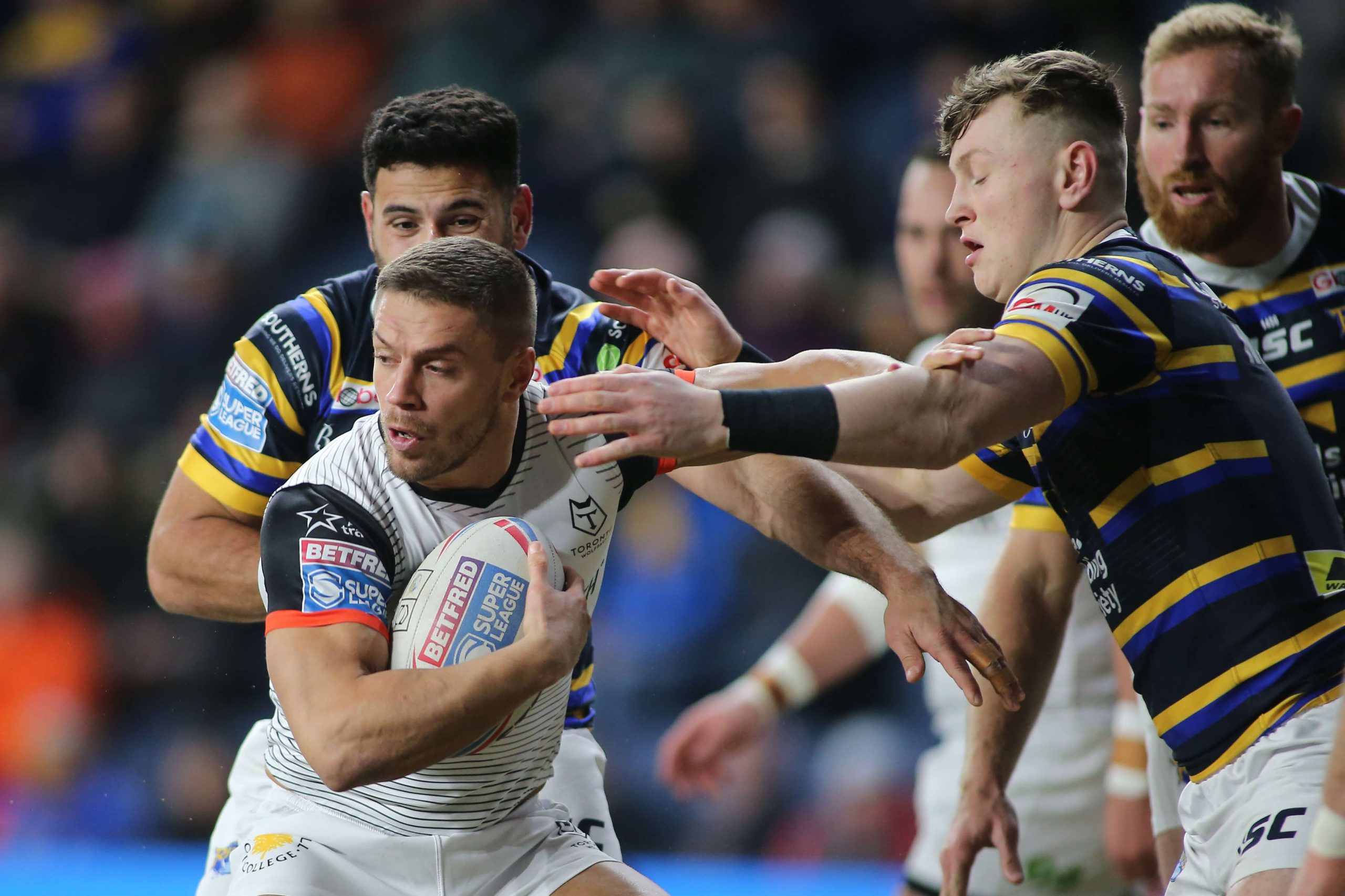TORONTO — Even if the CFL plays an abbreviated ’20 season in a hub city under the strictest of health-and-safety guidelines, an infectious diseases doctor believes there will still be positive tests for the novel coronavirus that could force the league play to end abruptly.
The CFL is reportedly looking at playing in a single hub or two hub cities to limit teams’ exposure to the virus. But Dr. Isaac Bogoch, an infectious diseases expert at Toronto General Hospital and associate professor of medicine at the University of Toronto, said positive tests remain possible and could threaten play — just like in other leagues.
“The short answer is nothing in this era is going to be without risk,” Bogoch said during a telephone interview. “There are certain things we can do to minimize the risk but as with anything, there’s going to be some element of risk of acquiring this infection.
“The league and players can work with medical professionals to make this as safe as possible but at the end of the day they’ll have to sit down collectively and decide, ‘Is this worthwhile.’ As individuals they’ll have to ask themselves, based on the protocols in place and individual risk perception, risk tolerance and risk threshold, ‘Am I willing to play?'”
The CFL and CFL Players’ Association continue to discuss amendments to their current collective bargaining agreement that would allow for a partial ’20 season. The earliest action would begin is September, but commissioner Randy Ambrosie has said a cancelled campaign also remains possible.
In March, the COVID-19 pandemic forced a global shutdown of sports. In Europe, pro soccer has resumed while domestically Major League Soccer, Major League Baseball, the NHL and NBA are all attempting to either restart or open their seasons.
But it hasn’t been easy as all four North American circuits have had players or team officials contract the virus. FC Dallas was forced to withdraw from the MLS is Back Tournament in Orlando after 10 players and one coach tested positive.
The NHL hopes to open training camps Monday and resume play in Edmonton and Toronto on Aug. 1. Players would stay in tightly controlled bubbles and play games without fans.
Teams can bring 52 personnel, with no more than 31 players, to their hub. Everyone in the bubble will be tested daily — including players, staff, hotel workers, food service employees and bus drivers.
Players and team officials will remain inside the bubble except in specific extenuating circumstances. That includes medical attention, the birth of a child or death in the family.
Anyone returning to the bubble will be subject to a minimum four-day quarantine with daily nasal swab tests for COVID-19.
The NHL and NHLPA have the ability to delay, postpone, move or cancel games due to a “risk to player health and safety” and/or chance that “the integrity of the competition” is in jeopardy, including “an uncontrolled outbreak of COVID-19.”
However, perhaps the biggest challenge the CFL faces is a financial hurdle. Unlike other major sports entities, it doesn’t have a billion-dollar TV deal and thus isn’t flush with money.
Ambrosie has stated often the nine-team CFL collectively lost $20 million last year. That hardly puts it in an ideal position to cover food and lodging costs for its teams as well as daily testing.
Bogoch said regardless of the measures taken in a hub or bubble, positive test results are inevitable.
“Oh, 100 per cent and there already have been,” he said. “If they do proceed, I think the leagues and fans should be aware that anything can happen.
“The leagues could come to a halt should there be an outbreak or safety concern, individuals or teams might be pulled out. Quite frankly, as much as we want to have high expectations we should really lower them. We’re in the COVID-19 era, anything can happen.”
No league has said a specific number of positive tests will result in the cancellation of games.
Bogoch said hubs and bubbles are beneficial. With the exception of baseball, the other three North American leagues are going with hub plans.
“First, they reduce the probability of introducing infection within the bubble,” he said. “If (infection) is introduced, it really reduces the probability that it can be transmitted.
“If there’s infection it will hopefully be rapidly identified because of the high frequency of diagnostic testing and symptom checks. Now, the best-laid plans can still have holes in them but what we’ve seen with basketball and soccer is these plans work in that they’ve identified positive cases and players have been isolated. That tells me the safety mechanisms are working and that’s fantastic.”
But the mounting positive tests have prompted many to question sport’s return before the discovery of a suitable vaccine.
“The key is ensuring if you’re going to play pro sports, you’re doing it in a safe and ethical manner,” he said. “Safety really means player safety, safety of the auxiliary personnel but also public safety as well.
“Ethical manner means you’re not drawing resources away from the community in which you’re playing. Can that occur while there’s still an ongoing push to ensure safety across the country and develop a vaccine and develop programs? I personally think if it’s carefully planned out, they can both be done very well.”
Bogoch, a Calgary native, is a recreational hockey player in his spare time. But he also watches at least two CFL games each year: The Labour Day Classic between the Calgary Stampeders and arch-rival Edmonton Eskimos; and Grey Cup.
“That (Labour Day game) is just ingrained in my DNA,” he said with a chuckle. “The Labour Day Classic is so quintessential Alberta, it’s wonderful.
“There’s something so Canadian about (the Grey Cup), it’s 40 below in a blizzard and the guys are out on the field. It’s just wild.”
While Bogoch appreciates sport isn’t a priority for some, he said it can definitely provide a boost for others during a pandemic.
“When we step back and think about what’s been happening the last six months and especially since our lockdown in March and throughout our gradual reopening, people have taken a tremendous hit,” he said. “We’ve taken financial hits . . . we’ve taken emotional and psychological hits by staying at home.
“While some people might say (sport) isn’t an essential service and they’re correct, I think we can also say professional and amateur sports and other forms of entertainment like the arts are extremely important to the psychological and emotional well-being of our society. This may help provide some intangible benefits as well.”
Mercifully, Bogoch sees light at the end of the COVID-19 pandemic tunnel.
“I think we’ll gradually see this start to wind down as vaccines are developed and rolled out globally,” he said. “In the best-case scenario it could be as early as late 2020 . . . but more realistically needles will start going into arms in 2021.
“I think the key word there is globally because if there’s an infection in one part of the world, there’s a problem in all parts of the world. This thing is pretty contagious and people are mobile so we need this vaccine deployed on a global level.”
This report by The Canadian Press was first published July 8, 2020.
Dan Ralph, The Canadian Press













